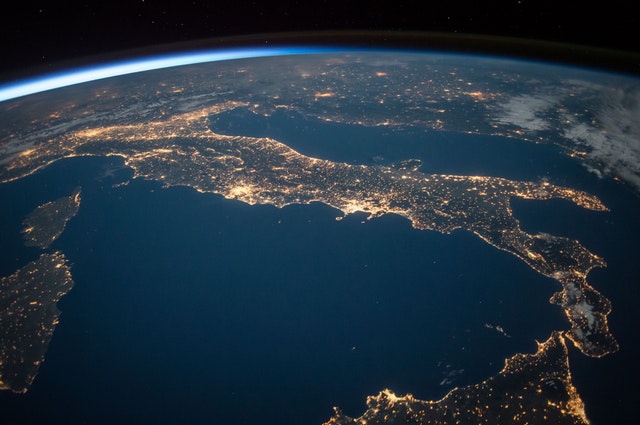Perhaps you’ve heard that in the coming decades, human beings will be able to live on the moon. Or maybe you’ve seen an article about the possibility of future colonies floating in space, like the International Space Station, but on a massive scale. Maybe you’ve even come across a headline about the possibility of human beings living on Mars one day. It all sounds so exciting and futuristic—can you blame the human race for fantasizing about a potential future in space one day? It’s the last frontier, the great unknown, and people have dreamed about living on other planets for decades.
But is Elon Musk really going to start sending human beings to live on Mars in the next few years, or is all this talk of living amongst the stars just some kind of pipe dream? The idea that human beings could set up a civilization in space one day is really nothing new, but are we really that close to actually turning that idea into a reality?

The truth is that a human future in space is probably not happening for a long, long time—if it happens at all, that is. Could it be possible for human beings to make their first visit to Mars within the next couple of decades? Maybe. But setting up an entire society there that could actually accommodate a substantial amount of people? Let’s just say that as incredible as it might sound, you’re not going to be packing up your apartment and shipping off to Mars anytime soon.
Why is there so much buzz about the potential of human civilization in space? On one hand, people have always found it fascinating, but at this pivotal moment in time, there’s more to it than that. It sounds a bit insidious, but in some ways, it seems like this is more of a distraction tactic than a serious proposal.
As the effects of climate crisis become more and more disruptive (especially as we head into what’s sure to be another brutally hot summer), it’s reaching a point where it’s difficult for people to deny that something is wrong. Yes, climate crisis deniers still exist, but the average person is aware that the earth is getting hotter, the sea levels are rising, and human beings are contributing to it. Our reactions are varied—some feel a sort of despair that psychologists are calling “eco-anxiety,” some feel relieved that they won’t be around to see the worst effects of it, some are reconsidering their lifestyles and career choices, and some are doing their best to go on as normal.
But a large number of people are hopeful that technology can save us without us having to make drastic changes to our own lifestyles, and that the experts will come up with a solution in time, before we move past the point of no return. And when public figures push the idea that maybe we can simply pack up and go, and leave this whole mess behind, they feed into that narrative.
The truth? There is no planet B. And if human beings ever settle down on another planet, it’s not like billions of us would get the opportunity to go—perhaps a select few would have the chance, while the rest of us would still be here on Earth. Ultimately, libertarian billionaires like Musk or Jeff Bezos are indulging their boyhood dreams of launching rocket ships, not save humanity with a noble intention and a practical plan.
Part of the appeal of escaping climate crisis and the other difficult challenges we face as a society by starting fresh on a new cosmic frontier is because this “solution” still allows us to think of our planet as another disposable resource. What if we could just leave when it is all “used up?” What if we could forget about the mess we made, the oil we spilled into the oceans, the carbon we pumped into the atmosphere, the mountains of discarded plastic that will sit in landfills for hundreds of years? The scale of the problems that we face today can seem so insurmountable that sometimes, it’s easier to imagine simply wiping our hands of it and starting over somewhere else than changing for the better here on Earth. But that can’t be farther from the truth: Even the most hostile place on Earth is thousands of times more habitable and life-sustaining than the most forgiving place on Mars, on any other known corner of the universe. Cleaning up Earth is thousands of times more efficient than turning the brutal environment of other planets into settings that won’t instantly kill us.
Human beings will always look to the stars. We’ve done it for thousands of years, from the days when our ancestors gathered around fires and gazed at the night sky, wondering at the constellations. But our future isn’t up there. It’s here, and we’ve got to put all of our energy towards fixing our broken society.
So the next time you see a headline proclaiming that Elon Musk has a plan to begin colonizing Mars within the next five years, read with a skeptical mindset. It’s fun to dream—but right now, we’ve got work to do.
Also by Jane: Food Sensitivity Tests Are The Latest Wellness Trend—Should You Take One?
Here’s How This Man Achieved The Smallest Carbon Footprint In the UK
Get more like this—Subscribe to our daily inspirational newsletter for exclusive content!
__
Photo: Pexels




